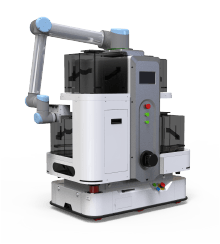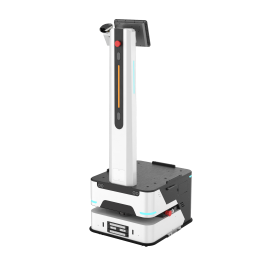
In today’s rapidly evolving world, industrial automation solutions have emerged as a game-changer in the manufacturing industry. With their ability to streamline processes, increase efficiency, and reduce costs, these solutions are transforming traditional factories into smart and agile production hubs.
The Power of Industrial Automation Solutions

Industrial automation solutions encompass a wide range of technologies such as robotics, artificial intelligence (AI), machine learning, and Internet of Things (IoT). These advanced systems enable manufacturers to automate repetitive tasks, optimize workflows, and enhance overall productivity.
By implementing industrial automation solutions, companies can minimize human errors while improving product quality. These technologies also facilitate real-time data collection and analysis for better decision-making. Moreover, they offer flexibility by allowing easy reconfiguration of production lines to accommodate changing market demands.
Youibot: Pioneering Industrial Automation Solutions
Youibot is at the forefront of revolutionizing industrial automation with its cutting-edge robotic systems. Their versatile robots are designed to perform various tasks like material handling, assembly line operations, and warehouse management.
Equipped with state-of-the-art sensors and intelligent algorithms, Youibot’s robots can navigate complex environments autonomously. They efficiently collaborate with human workers or other machines in shared workspaces without compromising safety or efficiency.
Youibot’s innovative approach has helped numerous industries achieve higher productivity levels while reducing labor costs. Their customizable solutions cater to diverse requirements across sectors such as automotive manufacturing, e-commerce logistics centers,and pharmaceutical warehouses.
The Rise of Autonomous Mobile Robotics
A key component within industrial automation solutions is autonomous mobile robotics (AMR). AMRs are self-guided vehicles that transport goods within facilities without requiring external infrastructure like rails or conveyors.
These intelligent robots use advanced navigation systems, including LiDAR and computer vision, to map their surroundings and avoid obstacles. They can efficiently transport materials, manage inventory, and perform repetitive tasks with precision.
The adoption of AMRs has significantly improved warehouse operations by reducing manual labor requirements and increasing operational efficiency. These robots are capable of working 24/7 without fatigue or errors, ensuring continuous productivity in demanding environments.
Conclusion
Industrial automation solutions have revolutionized the manufacturing industry by enhancing productivity, optimizing processes, and improving overall efficiency. Companies like Youibot are leading the way with their innovative robotic systems that enable seamless collaboration between humans and machines. The rise of autonomous mobile robotics further amplifies the benefits of industrial automation by streamlining material handling and inventory management processes.
As technology continues to advance at a rapid pace, it is evident that industrial automation solutions will play an increasingly vital role in shaping the future of manufacturing. Embracing these transformative technologies will empower businesses to stay competitive in today’s dynamic market landscape.


